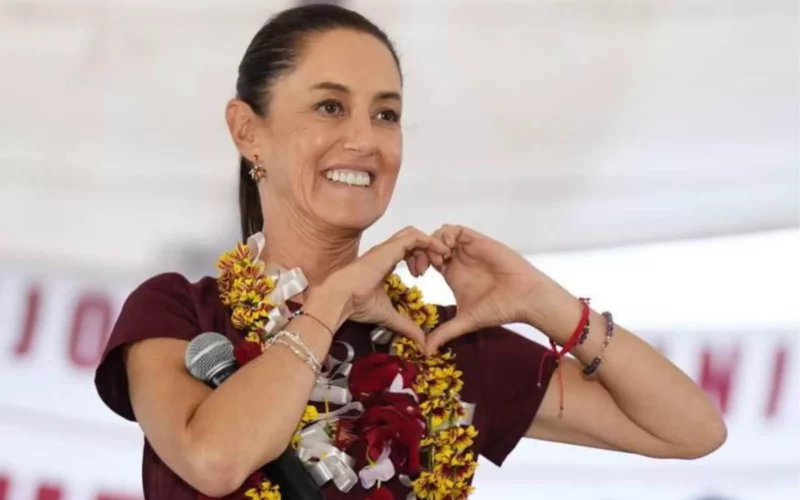In a historic turn of events, Mexico is on the verge of electing its first female president, a milestone that will precede a similar achievement in the United States. Sunday’s national vote is expected to see Claudia Sheinbaum, a former mayor of Mexico City and a scientist, engineer, and populist, secure victory.
Sheinbaum leads the three-way presidential race, with her closest competitor, Xóchitl Gálvez, a businesswoman and former senator, trailing behind. The third candidate, Jorge Álvarez Máynez, is far behind in the polls, making Sheinbaum the likely victor. Her anticipated win will mark a significant moment not only for Mexico but also for its relationship with the United States.
Shannon O’Neil, a senior fellow at the Council on Foreign Relations, emphasizes the importance of this election for the United States. “Who the next president of Mexico is really matters,” she said, noting that many issues in Mexico have direct implications for the U.S., from trade and immigration to drug trafficking.
Mexico’s influence on the U.S. is substantial. It is the U.S.’s largest trading partner, surpassing China last year, with nearly $800 billion in annual trade. Mexican exports, including car parts, windmill blades, pacemakers, and avocados, significantly impact the American economy and lifestyle.
Despite the close economic ties, the U.S.-Mexico relationship is complex and fraught with challenges. Mexico is the transit route for many U.S.-bound migrants, causing frequent humanitarian crises at the border. Additionally, Mexico is a significant source of fentanyl, which has led to a devastating opioid crisis in the U.S.
O’Neil underscores the importance of cooperation between the two nations. “If you have a president that is open to the United States and cooperating on the shared challenges and doubling down on the opportunities, that is better for the United States,” she said.
Sheinbaum, leading by double digits in the polls, is perceived as more of a left-leaning idealist compared to her mentor, President Andrés Manuel López Obrador, known as AMLO. She has pledged to continue AMLO’s agenda, which includes significant social programs and efforts to combat inequality.
During a recent campaign rally, Sheinbaum praised AMLO’s presidency and committed to addressing classism, racism, machismo, and discrimination. Her policies include cash transfers to approximately 25 million Mexicans, focusing on elderly people, students, and other vulnerable groups.
However, AMLO’s tenure has seen mixed results in U.S.-Mexico cooperation. While he scaled back security cooperation by ending the Mérida Initiative, he successfully renegotiated the free trade agreement with the U.S. and continued efforts to curb migration to the U.S. border.
The most pressing issues for Mexicans, however, are domestic, including inflation, economic opportunities, and public safety. The election comes at a time when Mexico is grappling with high levels of violence and economic instability.
Jennifer Apperti, director of the Texas-Mexico Center at Southern Methodist University, highlights the security challenges facing the next administration. “Whoever wins will be dealing with huge issues in terms of security,” she said, noting the importance of addressing crime and job creation.
In the final days of the campaign, Gálvez attempted to leverage public dissatisfaction with the current administration’s security strategy, criticizing AMLO’s “hugs not bullets” approach to crime.
Despite these challenges, many Mexicans remain optimistic about their country’s future and its relationship with the United States. Lorenzo Pacheco, a supporter of Sheinbaum, believes in the mutual benefits of the U.S.-Mexico relationship. “The United States depends on Mexico as much as Mexico depends on the United States,” he said.
As Mexico prepares to elect its first female president, the outcome will undoubtedly shape the nation’s future and its vital relationship with its northern neighbor.








